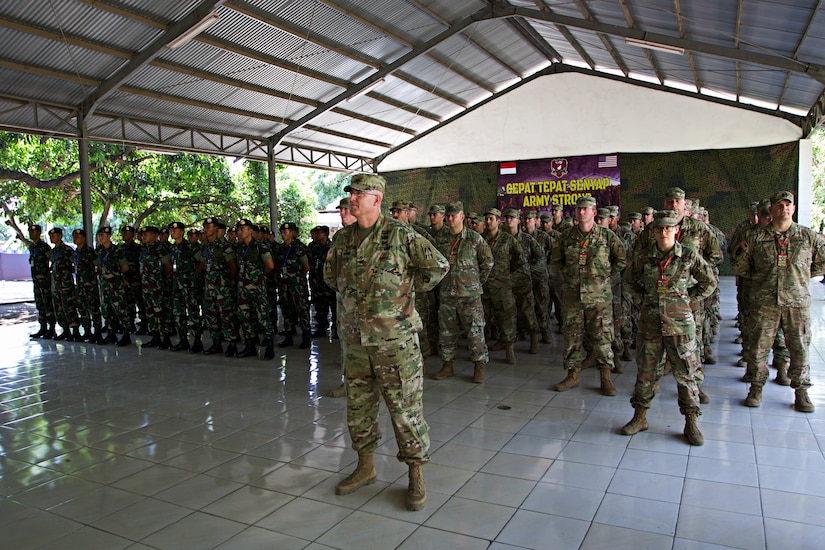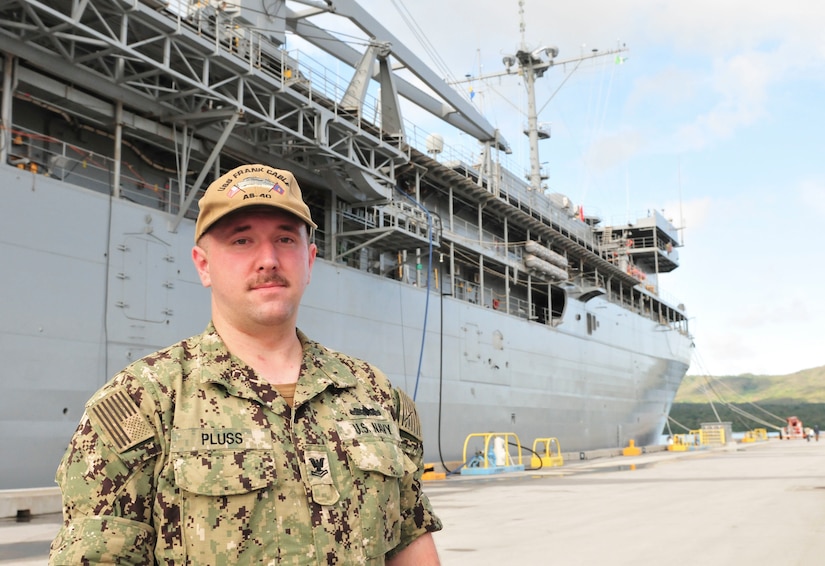By Army Capt. Marshall Howell, 76th Infantry Brigade Combat
Team
PUSLATPUR, Indonesia -- With well-rehearsed precision,
Indiana Army National Guardsmen from the 76th Infantry Brigade Combat Team held
a joint ceremony here July 30 with their Indonesian army counterparts to mark
the opening of the twelfth iteration of Exercise Garuda Shield, a bilateral
exercise sponsored by U.S. Army Pacific.
Garuda Shield 18 is the third exercise in USARPAC’s second
iteration of Pacific Pathways, a series of multinational engagements with ally
and partner militaries in the Indo-Pacific region. This year also marks the
first time an Army National Guard unit is participating in the series as the
lead training element that will conduct a joint staff exercise with the
Indonesian army.
“The opening ceremony really highlighted the importance of
the bilateral training experiences that we are having as the U.S. Army with
many of our coalition, NATO and allied partners around the world,” said Army
Col. Robert D. Burke, commander of the 76th IBCT. “The camaraderie, the esprit
de corps and just the vibrancy that we had in the opening ceremony really
highlighted how great these next two weeks will be as we work through this
staff exercise together.”
Exercises such as Garuda Shield contribute to peacekeeping
capability in the Indo-Pacific region, which in turn fosters interoperability
and competency with partner nations that strengthen the Army’s capabilities to
respond to a crisis situation.
State Partnership Program
Indonesian army Maj. Gen. Marga Taufiq, the commander of the
2nd Infantry Division, also welcomed the Hawaii National Guard Adjutant
General, Army Maj. Gen. Arthur J. Logan, as his co-host of the opening ceremony
while emphasizing the shared respect between the partner armies.
“The Hawaii National Guard has had a state partnership with
Indonesia since 2007 when we began with subject matter exchanges and exercises
such as Garuda Shield, as well as senior leader visits,” Logan said.
“Participating in these numerous bilateral exercises allows the United States
to focus on building capacity and relationships, thereby enhancing the
sovereignty of Indonesia and security in this region.”
“I’m positive that the staff exercise between the
[Indonesian army’s] 9th Brigade and the 76th IBCT, focusing on the military
decision-making process, will only enhance capacity building and relationships,
and more importantly will encourage joint participation with the senior and
junior officers, and noncommissioned officers, working together,” he said.
Burke agreed on the importance of the relationships being
established between the two staffs participating in the exercise along with
Army support personnel from Schofield Barracks, Hawaii and Okinawa, Japan.
“To have Maj. Gen. Logan as a part of this, representing the
Hawaii National Guard and their state partnership program that they have with
Indonesia, is really going to solidify that lasting, long-term relationship
that we are going to have for many years to come as the U.S. Army, and have a
National Guard flavor to that relationship, in a country that is truly a
partner to the security of this region of the world,” he said.
Following the ceremony, the combined units showed their
enthusiasm for working together by conducting a “Yel-Yel,” a cry-and-response
war dance similar to a Maori haka, to kick off the training.
“It really set the tone for what we are looking forward to
doing over the next few weeks and demonstrated the willingness of their
soldiers and ours to embrace the environment we are in together and the
cooperativeness that we are going to experience together as we both share and
learn things that we each do well in our armies,” said 76th IBCT Army Command
Sgt. Maj. Steven J. Bishop.
“We both share in our hearts similar things as professionals
in the profession of arms, and, in that, we speak a common language that
quickly tears down the barriers and walls that you see when you incorporate two
different people and two different nations together in this type of exercise,”
he said.










